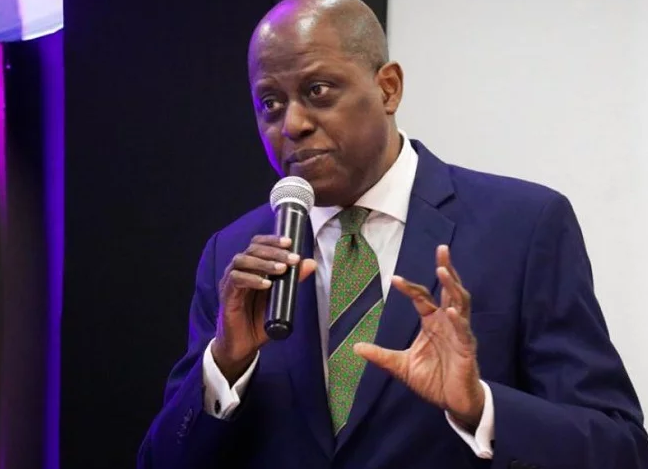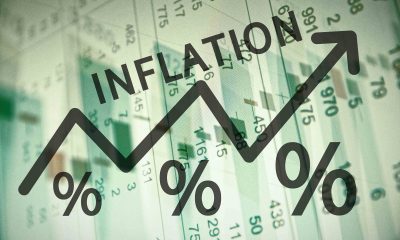Business
Oil Price Soars to Seven-year High, Surges Near $87pb

•Supply constraint, fading COVID-19 fears drive up prices •Nigeria leads OPEC’s underperformance
Oil prices traded within striking distance of its seven-year high at $86.71 per barrel yesterday on continuing supply constraints and waning fears among heavy fuel users of another pandemic-induced slowdown.
In the last two weeks, Brent, Nigeria’s benchmark, has climbed more than 10 per cent to as much as $86.71 a barrel, exceeding last October’s high, to levels not seen since 2014 when oil topped $115.
On the other hand, the United States oil marker, the West Texas Intermediate (WTI) has risen more than 12 per cent since the start of the year, to hit a high of $84.78, just under last year’s peak.
Nevertheless, the rising oil prices is more of bad news for Nigeria which should ordinarily earn more foreign exchange from the sale of crude, but now has to deal with paying more for petrol subsidy which had been described as a drain on its economy because there’s a positive relationship between the international prices of the commodity and how much Nigerians get the product at the pump.
In the meantime, some analysts are forecasting that the crude benchmarks would trade at more than $100 a barrel again this year unless there is a significant increase in supply.
READ ALSO:
- 2023: No Better APC Presidential Aspirant Than Tinubu In The South – Shettima
- Ekiti PDP Aspirants Protest against Fayose, Want Congress Annulled
- 2023: Nigeria’ll break if power remains in the North –MBF
The Organisation of Petroleum Exporting Countries (OPEC) and its allies had stuck to a plan agreed in July last year to replace output cut at the start of the pandemic gradually, by just 400,000 barrels a day each month, despite calls by major crude oil consuming nations like the United States to increase production. Generally, the strategy has helped oil prices move higher since August, and to recover quickly after the rapid spread of the Omicron coronavirus variant in November.
However, even at that, not all members of the OPEC+ group, including Nigeria have been able to hit their monthly targets, meaning the cartel has been increasing output by slightly less than its monthly target.
THISDAY recently reported that Nigeria’s continuing inability to pump enough crude oil, in part, resulted in the overall failure of OPEC to meet its target production for last month.
Whereas the target for Nigeria was 1.67 million barrels per day for last month, it only managed to produce 1.44 million barrels per day in December and 1.49 million barrels the previous month, using secondary sources.
The development has widened the gap between OPEC+ crude oil quotas and production as the group’s steady plan to loosen its pandemic cuts, once again outpaced actual output gains.
Nigeria has been struggling for months with meeting the quota allocated to it by OPEC due to ageing infrastructure as a result of years of under-investment in the upstream of the oil and gas sector.
Added to these are vandalism and sabotage, technical issues as well as difficulties with restarting oil wells the country shut down last year in the heat of the Covid-19 pandemic.
But despite the limitation, the largest individual increase was in West Africa, where Angola boosted output by 90,000 bpd to 1.2 million bpd. Although this was the highest monthly level of 2021, Angola was still 190,000 bpd below its December quota.
West Africa also saw the biggest individual decline last month, with Nigerian output tumbling and defying state-owned Nigerian National Petroleum Corporation (NNPC) Group Managing Director, Mallam Mele Kyari’s forecast that the country would reach its target by the end of last year.
On December 22, the National Assembly approved a N17.126 trillion ($38 billion) budget for 2022, anchored on an oil price benchmark of $62 per barrel.
The approved oil price assumption was higher than the $57 per barrel price that President Muhammadu Buhari had proposed to the parliament on October 7, and also higher than the oil price benchmark of $40 per barrel adopted by the government for the 2021 budget.
READ ALSO:
- Bandits to Zamfara villages: Pay N24m tax or be attacked
- NASS staff slips from stairs, dies
- Kanu faces eight new terror charges as trial resumes Tuesday
- FG orders security agencies to kill, not injure jail attackers
In addition, Nigeria retained the oil production target of 1.88 million bpd, including condensate production of between 300,000-400,000 bpd, for the purpose of its revenue calculation in 2022.
This is as compared to the output target of 1.86 million bpd the government had set for the 2021 fiscal year.
In addition, frantic oil buying, driven by supply outages and signs the Omicron variant of COVID-19 will not be as disruptive as feared for fuel demand, has pushed some crude grades to multi-year highs, suggesting the rally in Brent futures could be sustained a while longer.
A Reuters report quoted unnamed sources yesterday as saying that China plans to release oil reserves around the Lunar New Year holidays between January 31 and February 6 as part of a plan coordinated by the United States with other major consumers to reduce global prices.
Saudi Energy Minister Prince Abdulaziz bin Salman said on Monday it is the prerogative of the US government whether to release supply from the strategic petroleum reserves.
Kyari said recently that if the prices of oil rise too quickly and too high, it would be bad for Nigeria as its customers may likely look for alternatives to the commodity.
Meanwhile, oil analysts have raised their oil price forecasts for the first quarter of 2022, expecting demand to outpace supply.
Thisday
Business
Tron Founder joins Trump-backed crypto project, invests $30m

Tron Founder joins Trump-backed crypto project, invests $30m
Justin Sun, the founder of the Tron Blockchain has joined the World Liberty Financial project as an advisor after investing $30 million into the project.
The World Liberty Financial project is backed by the Donald Trump family and aims to become a leading crypto project in the global crypto space.
Justin Sun joined the project as an advisor after purchasing $30 million worth of WLFI tokens making him the largest shareholder in the project.
The development was announced via the official X page of the World Liberty Financial project welcoming the Crypto founder to the project.
“Exciting Announcement!
We’re honored to welcome @justinsuntron as an advisor to World Liberty Financial (WLFI)! Justin is the founder of @TRONDAO an advisor to @HTX_Global, and a supporter of @BitTorrent
. A graduate of the University of Pennsylvania, he recently won Sotheby’s auction for the iconic banana artwork.
#TRON is among the world’s top 10 cryptocurrencies and one of the largest public blockchains. Justin’s insights and experience will be instrumental as we continue to innovate and grow. Welcome to the team, Justin!” WLFI tweeted
READ ALSO:
- Drama as Yahaya Bello calms supporters after judge storms out of court over rowdiness
- NAF destroys terrorists’ gun truck, neutralizes over 20 fighters, repels attack on troops
- They want to cancel my show in Nigeria over economy comment – Davido
Justin Sun’s $30 million investment in the project boosted the sales traffic of its native token raising it from $21 million to $53 million.
The increased inflow of capital into the project better positions the project to achieve its goals which include a stablecoin-focused credit card and infrastructure enhancement.
Justin Sun brings onboard his wealth of experience as the founder of one of the Top 10 blockchains in the industry by market cap and his advisory role at HTX and BitTorrent.
Sun’s previous track record of bold investments and innovation is expected to be a huge boost to the WLFI project.
The WLFI gig is another feather to the hat of Justin Sun as he expands his activities in the crypto space. The Tron founder recently purchased a 6.3 million NFT art in a bid to revive a stagnant sector.
The World Liberty Financial project is backed by Donald Trump’s family and it looks to promote the mass adoption of Defi and stablecoins. This project aligns with the Donald Trump pro-crypto mantra and has all the credibility a project of that status needs.
Tron Founder joins Trump-backed crypto project, invests $30m
Auto
Toyota By CFAO showcases latest Land Cruiser Prado, others at P’Harcourt Open Day

Toyota By CFAO showcases latest Land Cruiser Prado, others at P’Harcourt Open Day
Toyota By CFAO, the authorized distributor of Toyota vehicles in Nigeria, has commenced a three-day special display of the latest new Toyota models from the company at an Open Day organised in Port Harcourt, Rivers State, for residents of the city and its surrounding areas.
The Toyota By CFAO Open Day holds from Tuesday, November 26 to Thursday, November 28, 2024, according to a statement by the company.
The event running from 9am to 5pm each day is taking place at the auto company’s showroom located at 184B, Trans-Amadi Industrial Layout, Port Harcourt.
It discloses that the exciting event will feature the highly anticipated 2024 Toyota Land Cruiser Prado, one of Toyota’s flagship models, alongside a range of other exceptional vehicles tailored for the Nigerian market.
This, it notes, is an exclusive opportunity for attendees to explore the latest in automotive excellence, discover new vehicle options, and benefit from Toyota By CFAO’s End of Year Bonanza.
General Manager of CFAO Mobility Port Harcourt, Julius Fasetire, encourages all residents to “come witness history in motion as we proudly unveil the All-New 2024 Toyota Land Cruiser Prado.

“Be among the first to explore this remarkable masterpiece and discover our full range of Toyota vehicles. Don’t miss out on the chance to experience automotive excellence and enjoy a free diagnostic check for your Toyota vehicle!”
The 2024 Toyota Land Cruiser Prado has already generated excitement across the country, following its recent unveilings in Lagos and Abuja.
The product is quickly becoming one of the most sought-after sports utility vehicles in Nigeria, appealing to both corporate and individual buyers.
With over 11.3 million units sold globally in more than 170 countries, the Land Cruiser Prado is renowned for its rugged off-road capabilities and comfort for everyday driving.
The firm says this year’s model comes in two distinctive editions – the Limited Edition (First Edition) and the Adventure Edition – both equipped with a 2.4L turbocharged gasoline engine and an 8-speed automatic transmission, ensuring superior performance both on and off the road.
Toyota By CFAO also says it ensures that genuine parts and a comprehensive 3-year/100,000 kilometre warranty are available for all customers.
In addition to the Land Cruiser Prado, the event will showcase a variety of other popular Toyota models including the Belta, Rumion, RAV4, Camry, and Hiace.
The Open Day, it stresses, promises to be a must-attend event for anyone interested in exploring the world of Toyota vehicles, from luxury to practicality, and experiencing firsthand the future of automotive technology.

The company says more details about the rich offering of Toyota in the Nigeria market can be obtained from https://www.toyotabycfao.ng/.
Business
Nigeria’s foreign reserves in marginal increase, now $40.88bn

Nigeria’s foreign reserves in marginal increase, now $40.88bn
Nigeria’s foreign reserves rose to $40.88 billion as of November 21, the Governor of the Central Bank of Nigeria (CBN), Olayemi Cardoso, has said.
Cardoso disclosed this on Tuesday at a press conference after the Monetary Policy Committee’s 298th meeting in Abuja.
He said the external reserves grew from $40.06 billion at the end of October to $40.88 billion in November.
The amount represents an increase of $82 million or 2.05 per cent in 21 days.
“The external reserves rose marginally to 40.88 billion as of 21 November 2024, from 40.06 billion at the end of October 2024, available to finance 17 months of imports,” he said.
However, from the apex bank’s website, the increase in Nigeria’s foreign reserves showed $40.27 billion on November 22.
Cardoso also said, “The process of getting us where we are in terms of reserves has been a long one”.
“It is a clear indication that the policies we have put in place are certainly yielding fruits,” he added.
“However, and it’s very important to make a distinction here and to reiterate the fact that reserves are there for a multiplicity of different purposes, not least of which is to create buffers in the event of unanticipated shocks.
“So they are not there to simply whittle away. They are there to be used to more or less defend yourself where that becomes necessary
“And when we talk about shocks that are not anticipated, I think we can see how the global economies are.”
Cardoso also said the bank would continue to intensify efforts to stabilise the currency and prices.
The CBN governor said, “The currency has been stable compared to what it was in June”.
But he said for the value of the country’s currency to be stable, there must be increased exports and diversification of the economy.
Cardoso said diaspora remittance had increased due to policies put in place.
He commended those in the diaspora for helping the country accomplish over $600 million in remittances.
-

 metro1 day ago
metro1 day agoBREAKING: Port Harcourt refinery begins operation
-

 Sports24 hours ago
Sports24 hours agoFrench football star, Paul Pogba’s blackmail trial begin in Paris
-

 Business3 days ago
Business3 days agoJust in: Dangote refinery reduces petrol price for marketers
-

 Politics2 days ago
Politics2 days agoLagos 2027: Seyi Tinubu campaign team releases his life documentary
-

 Entertainment2 days ago
Entertainment2 days agoPolygamy best form of marriage for Africa – Okey Bakassi
-

 metro2 days ago
metro2 days ago40-foot container falls on car in Lagos
-

 International2 days ago
International2 days agoTrump to sack 15,000 transgender officers from U.S. military: Report
-

 Education22 hours ago
Education22 hours agoUS University opens 2025 scholarships for international students












